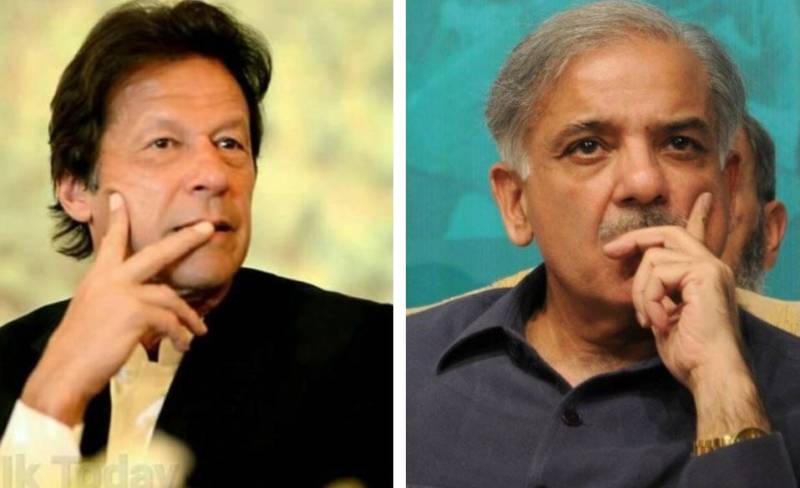
Outgoing Prime Minister Shahid Khaqan Abbasi almost became the latest victim of the dreaded ‘Sadiq and Ameen’ clause of the Constitution’s Article 62, after being disqualified by an election tribunal from contesting the elections in Murree’s NA-57.
While Abbasi successfully challenged the verdict against him, the outcome of the appeal is superfluous vis-à-vis the menace that the Article 62(1)(f) is for those aspiring for the Parliament, and the supremacy of the institution that they vie to qualify for.
History lesson
Article 62(1)(f) of the Constitution of Pakistan reads:
“A person shall not be qualified to be elected or chosen as a member of Majlis-e-Shoora (Parliament) unless: he is sagacious, righteous and non-profligate, honest and ameen, there being no declaration to the contrary by a court of law.”
Similarly, clauses (d) and (e) require the candidate to be “of good character… not commonly known as one who violates Islamic Injunctions” with “adequate knowledge of Islamic teachings” and someone who “practises obligatory duties prescribed by Islam as well as abstains from major sins.”
These clauses were among the 67 that were issued on March 2, 1985 as part of the The Revival of Constitution of 1973 Order (RCO), a sweeping set of largely Islamist changes under military ruler Gen Zia-ul-Haq in the aftermath of the 1985 elections, which themselves were held only after the enactment of the Political Parties Act of 1962 Amendment, laying further ground for civilians’ disqualification.
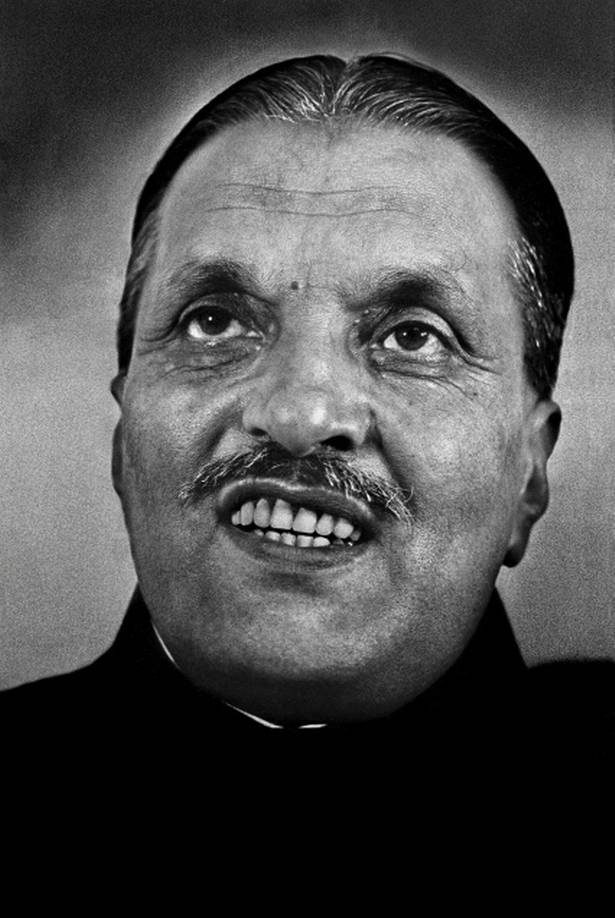
Islamist Inertia
Like most of Zia’s amendments and additions, the Islamist baggage that was added to the Article 62 of the 1973 Constitution has worked as a protective layer, resulting in any suggestion at reverting to the original being dubbed synonymous with attacking Islam.
With blasphemy against Islam itself punishable by death in the country – thanks again to Zia’s RCO – the politicians haven’t mustered the courage to undo the amendments from 1985. This is despite the fact that the lawmakers themselves have the most to lose if the clauses remain as they are.
Even so, undoing any military enforced clause in the Constitution – even one that has an Islamic cover – is possible, should the politicians muster the unity needed to go for it.
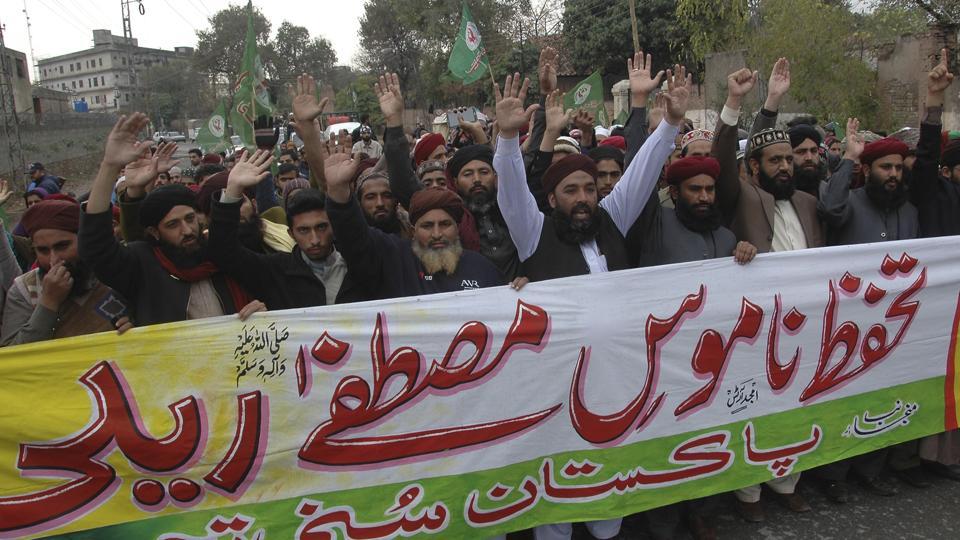
That lack of unity has meant that the Islamist parties, despite their negligible electoral success, have managed to keep the religionist status quo over the Constitution, leaving even conservative parties at the mercy of lawmaking that wasn’t orchestrated by the representatives of the masses.
Clause comes home to roost
That both the Pakistan Muslim League-Nawaz (PML-N) prime ministers of the previous tenure have fallen prey to the ‘Sadiq and Ameen’ clause is not only a sardonic representation of the abovementioned disunity, it is also a case of Islamist laws’ masochistic proponents falling in their own trap.
For years, the PML-N – historically a conservative right wing party – has wanted to keep the ‘Sadiq and Ameen’ card in play, for it to be played against the Pakistan People’s Party (PPP) whose members have been more vocal critics of the clauses – even if to condemn military’s legislative intervention, and not Islamist legislation per se.
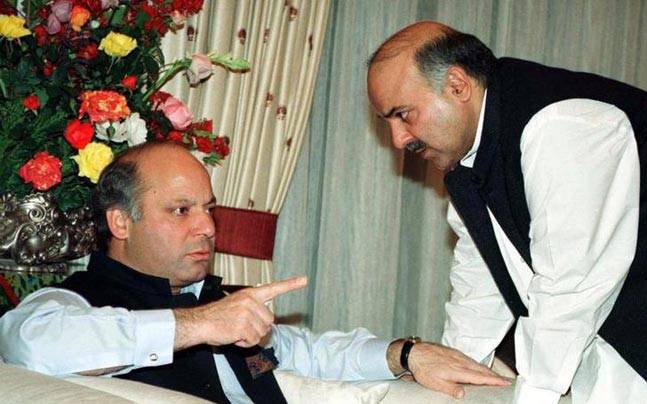
The chance to make amends was there with the 18th Amendment in 2010, but the PML-N opted out of supporting it fearing a dent in its own religious vote bank.
What has since followed is not just the disqualification of Nawaz Sharif as the premier and party chief, with the Constitution not mentioning the time frame of the disqualification, the Supreme Court has also adjudged that breaching the Islamist standards set by a military regime merited a lifetime disqualification for the offenders.
Onus on the next government
With the PPP already vocally against the RCO changes to the Articles 62 and 63 of the Constitution, the PML-N having learnt the hard way, it’s only the Pakistan Tehreek-e-Insaf (PTI) among the three main contenders for the upcoming elections, that needs to come on board for the needed to be brought about.
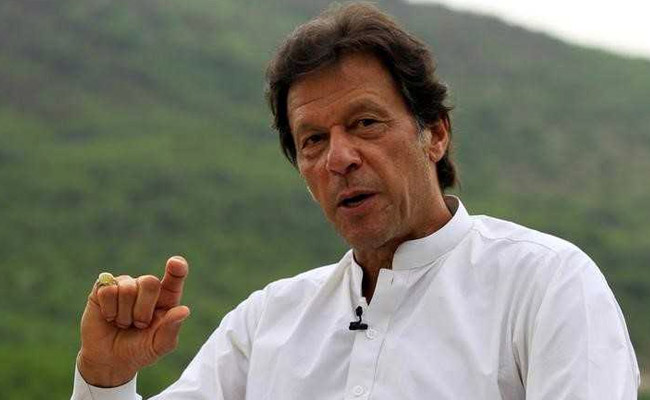
While the PTI chief Imran Khan has often demonstrated the political nous of a toddler, surely he would realise that he right now is precisely where Zulfiqar Ali Bhutto was in the late 1960s and Nawaz Sharif in the late 1980s, in terms of being the military establishment’s bet to take down a more menacing political opponent.
Therefore, should his party be involved in making in the government, the PTI should play ball and cover all the bases where the military could undermine the civilian supremacy that Imran Khan’s party aspires to be the vanguard of.
Even though the military establishment’s meddling looks to have ensured a coalition government, should all constituents be on board for this particular cause, the much needed amendments can definitely go ahead.
Also, what the change would represent is not just undoing of military sanctioned Islamist legislation, but also the political parties will stand together to ensure civilian supremacy.
As things stand, however, this would appear to be wishful thinking.
While Abbasi successfully challenged the verdict against him, the outcome of the appeal is superfluous vis-à-vis the menace that the Article 62(1)(f) is for those aspiring for the Parliament, and the supremacy of the institution that they vie to qualify for.
History lesson
Article 62(1)(f) of the Constitution of Pakistan reads:
“A person shall not be qualified to be elected or chosen as a member of Majlis-e-Shoora (Parliament) unless: he is sagacious, righteous and non-profligate, honest and ameen, there being no declaration to the contrary by a court of law.”
Similarly, clauses (d) and (e) require the candidate to be “of good character… not commonly known as one who violates Islamic Injunctions” with “adequate knowledge of Islamic teachings” and someone who “practises obligatory duties prescribed by Islam as well as abstains from major sins.”
These clauses were among the 67 that were issued on March 2, 1985 as part of the The Revival of Constitution of 1973 Order (RCO), a sweeping set of largely Islamist changes under military ruler Gen Zia-ul-Haq in the aftermath of the 1985 elections, which themselves were held only after the enactment of the Political Parties Act of 1962 Amendment, laying further ground for civilians’ disqualification.

Islamist Inertia
Like most of Zia’s amendments and additions, the Islamist baggage that was added to the Article 62 of the 1973 Constitution has worked as a protective layer, resulting in any suggestion at reverting to the original being dubbed synonymous with attacking Islam.
With blasphemy against Islam itself punishable by death in the country – thanks again to Zia’s RCO – the politicians haven’t mustered the courage to undo the amendments from 1985. This is despite the fact that the lawmakers themselves have the most to lose if the clauses remain as they are.
Even so, undoing any military enforced clause in the Constitution – even one that has an Islamic cover – is possible, should the politicians muster the unity needed to go for it.

That lack of unity has meant that the Islamist parties, despite their negligible electoral success, have managed to keep the religionist status quo over the Constitution, leaving even conservative parties at the mercy of lawmaking that wasn’t orchestrated by the representatives of the masses.
Clause comes home to roost
That both the Pakistan Muslim League-Nawaz (PML-N) prime ministers of the previous tenure have fallen prey to the ‘Sadiq and Ameen’ clause is not only a sardonic representation of the abovementioned disunity, it is also a case of Islamist laws’ masochistic proponents falling in their own trap.
For years, the PML-N – historically a conservative right wing party – has wanted to keep the ‘Sadiq and Ameen’ card in play, for it to be played against the Pakistan People’s Party (PPP) whose members have been more vocal critics of the clauses – even if to condemn military’s legislative intervention, and not Islamist legislation per se.

The chance to make amends was there with the 18th Amendment in 2010, but the PML-N opted out of supporting it fearing a dent in its own religious vote bank.
What has since followed is not just the disqualification of Nawaz Sharif as the premier and party chief, with the Constitution not mentioning the time frame of the disqualification, the Supreme Court has also adjudged that breaching the Islamist standards set by a military regime merited a lifetime disqualification for the offenders.
Onus on the next government
With the PPP already vocally against the RCO changes to the Articles 62 and 63 of the Constitution, the PML-N having learnt the hard way, it’s only the Pakistan Tehreek-e-Insaf (PTI) among the three main contenders for the upcoming elections, that needs to come on board for the needed to be brought about.

While the PTI chief Imran Khan has often demonstrated the political nous of a toddler, surely he would realise that he right now is precisely where Zulfiqar Ali Bhutto was in the late 1960s and Nawaz Sharif in the late 1980s, in terms of being the military establishment’s bet to take down a more menacing political opponent.
Therefore, should his party be involved in making in the government, the PTI should play ball and cover all the bases where the military could undermine the civilian supremacy that Imran Khan’s party aspires to be the vanguard of.
Even though the military establishment’s meddling looks to have ensured a coalition government, should all constituents be on board for this particular cause, the much needed amendments can definitely go ahead.
Also, what the change would represent is not just undoing of military sanctioned Islamist legislation, but also the political parties will stand together to ensure civilian supremacy.
As things stand, however, this would appear to be wishful thinking.
